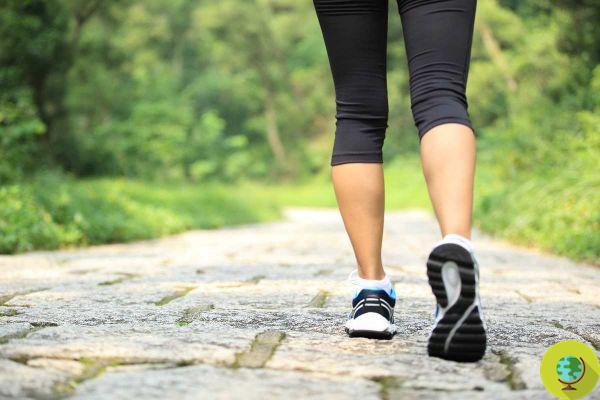
Sleeping little and not making up for lost rest hours can negatively affect the way you walk, new research shows
Sleeping little and not making up for lost rest hours can negatively affect the way you walk, new research shows
Insufficient sleep can adversely affect walking, particularly on how we control stride and gait. In fact, those who experienced a lack of sleep also found less control when walking.
A new study revealed that if you can catch up on lost sleep, even for just a few hours at the weekend, your walking will also improve. It is now well known that sleep can affect how we do cognitive tasks, such as solving a math problem, holding a conversation, or even reading. Less explored is the question of whether sleep affects the way we walk, or engage in other activities, which are presumed to be less mentally taxing.
This new study reports, however, that walking, and in particular, how well we can control our pace or gait, can actually be affected by lack of sleep.
A systematic review
In experiments with student volunteers, the team found that, overall, the less sleep the students had, the less control they had when walking during a treadmill test. Furthermore, it has been shown that compensate for sleep it could be an important strategy; for example, for those who are chronically sleep deprived, such as shift workers, doctors, and some military personnel, if they build regular sleep compensation, they may have better control over their gait.
The act of walking was once viewed as a fully automatic process, involving very little conscious and cognitive control, but it has been shown to be slightly more complicated than you think. In previous experiments, for example, it has been observed that healthy subjects can adjust their gait to accommodate subtle changes in visual stimuli, without realizing they are doing so. These findings suggest that walking involves subtle and conscious influence, as well as more automatic processes.
The results
In the new study, the team enrolled students from the University of Sao Paulo to take part in an experiment focused on Effects of sleep deprivation on gait control. Each of the students was given a watch to monitor their activity over a period of 14 days. This information gave the researchers an idea of when and how long the students slept and were active each day. The students were not given instructions on how much to sleep, so that the researchers could record their natural sleep patterns; on average, each student slept about six hours a day, although some compensated by catching up on sleep over the two weekends over the 14-day period.
On the evening before the 14th day, a group of students stayed up all night; this group has been designated as acute sleep deprivation group, or SAD. On the morning of the 14th day, all the students went to the laboratory to perform a walking test. Each student walked on a treadmill at the same speed, while the researchers played a metronome, and the students were asked to keep up with the beat, as the researchers slowly and subtly raised and lowered the speed, not saying they were doing it. The cameras captured the boys' walking and, in particular, the moment their heel hit the treadmill, compared to the rhythm of the metronome.
It was discovered that i subjects with acute sleep deprivation were out of rhythm, they lost their beeps and, in general, walked worse than everyone else. Hence, the results show that gait is not an automatic process and, more importantly, it can be affected by sleep deprivation.
Follow us on Telegram | Instagram | Facebook | TikTok | Youtube
Photos: Nature
Could it be interesting for you:
- Sleep: Are you getting enough sleep? How to calculate when you should go to bed
- If you wake up tired in the morning, you may have had little REM sleep. Tips and tricks to increase it and feel rejuvenated
- Stages of sleep, what are they and how many hours of deep sleep does your body need to regenerate?
- Insomnia: Just losing 16 minutes of sleep makes you less productive at work
- Weekend sleep can help reduce the risk of premature death
- World sleep day: tips and foods to sleep better
- Sleep, memories and memory: what happens to your brain while you sleep


























